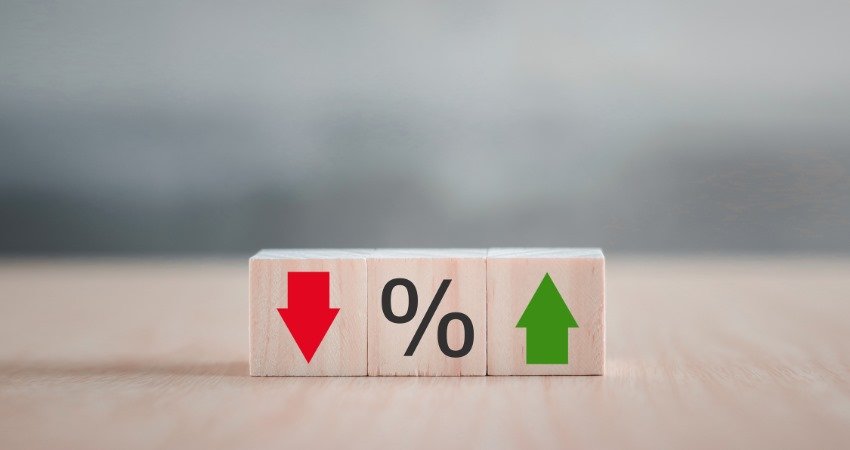
Policy Rate Cut: A New Dawn for Affordable Solar Energy in Pakistan
In an essential move expected at improving economic movement, the Monetary Policy Committee of Pakistan has just reduced the policy rate by 200 basis points, carrying it down to 17.5%. This decision indicates an innovative part in the country’s economic landscape, with wide consequences across many areas and solar energy also. The policy rate reduction has the capacity to make solar energy more reasonable, thus supporting the development of renewable energy in Pakistan.
How Does the Policy Rate Impact Solar Energy?
The policy rate is a main tool used by central banks to regulate price increasing and effect economic development. A higher policy rate usually rises the cost of borrowing for businesses and individuals, making financing for the large-scale projects are more expensive. On the other hand, when the policy rate is dropped, borrowing prices reduced, encouraging investment in sectors like solar energy, which require substantial initial capital.
For the solar energy sector in Pakistan, financing is a serious aspect. Solar systems, particularly for commercial and industrial schemes, may need substantial open investments. Nevertheless, with reduced interest rates, obtaining loans to finance solar fittings converts more achievable. This modification could shoot a wave of innovative investments in solar energy as businesses pursue profitable and supportable energy solutions.
Making Solar More Affordable for Consumers
One of the most important benefits of the policy rate cut is the lowering of financing costs for clients. Solar energy schemes have proven to be a long-standing and cost-saving, but the early investment can be a barrier all for many. With the decrease in borrowing prices, peoples and businesses can now access more reasonable financing choices, making the transfer to solar energy is more achievable.
Solar energy companies in Pakistan may also have an advantage from this situation by offering more beneficial financing packages, lead to the increase in demand. This could be mostly valuable for residential solar developments, where the implementation of solar power has been comparatively low due to financial limitations. A lesser policy rate makes a chance for solar companies to increase their purchaser base and drive the acceptance of clean energy solutions in Pakistan.
Boosting Economic Growth Through Solar Investments
The policy rate cut line up well with the government’s bigger goals of enhancing energy safety and development of economic evolution through renewable energy source. Solar energy not only decreases the reliance on fossil fuels but also beneficial for businesses by lowering their energy expenses. As the price of borrowing drops, companies are more interested to invest in solar power systems, foremost to job conception, high-technological developments, and the progress of a more sustainable energy structure.
For industries such as textiles, manufacturing, and agriculture, solar power offers a solution to the country’s determined energy disasters. With the convenience of inexpensive financing, these industries can implant solar energy into their processes, enlightening effectiveness and reducing dependance on the traditional energy source. This could be a game-changer for sectors stressed with increasing electricity costs and energy shortages.
Contributing to Pakistan’s Renewable Energy Goals
Pakistan has set determined renewable energy marks, targeting to produce 30% of its electricity from renewable bases by 2030. Solar energy is composed to play a key part in attaining this goal, but scaling up solar fittings needs significant investment. The reduction in policy rates offers the financial support needed to quicken these investments, move the country nearer to its renewable energy aim.
Additionally, as solar power becomes more reasonable, more businesses and landowners will be encouraged to shift to renewable energy source, contributing to the decrease of Pakistan’s carbon footprint. The policy rate cut hence its supports not only the growth of the solar energy sector but also the country’s eco-friendly and sustainability goals.
Facilitating the Growth of Green Financing
The policy rate cut is likely to boost green financing initiatives. Financial institutions may introduce more attractive lending options for eco-friendly projects, including solar energy installations. As a result, green bonds or eco-loans could become more popular, giving both individuals and companies an opportunity to access affordable financing specifically tailored for renewable energy projects.
Reducing Energy Costs for Businesses and Industries
For industries that face high operational costs due to electricity prices, the policy rate cut offers a viable pathway to switch to solar energy. Large-scale solar implantation can extremely reduce electricity bills, makes businesses more effective and move toward development and growth. This could be mainly relevant for Pakistan’s textile and industrial areas, where electricity production cost is important part of overall costs.
Reducing Reliance on Traditional Energy Sources
As solar energy becomes more reasonable due to lower interest rates, Pakistan can further reduce its reliability on traditional energy sources like fossil fuels burning. This would not only contribute to a eco-friendly solution mix but also help the country mitigate the risks connected with fluctuating global oil prices and energy imports.
Conclusion
The policy rate cut is a gifted development for Pakistan’s solar energy industry. By lowering borrowing prices, it opens the door to more affordable solar energy resolutions for businesses and consumers alike. With this reduction, solar system price in Pakistan is expected to become even more competitive, making renewable energy more accessible for the general public.
As the country remains to move toward renewable energy, the solar sector stands to advantage immensely, helping Pakistan move toward a cleaner, greener, and more energy-secure future. This new era of affordable solar energy could very well be the key to solving widespread solar adoption and supporting the nation’s broader economic and environmental ambitions.
“The reduction in the policy rate isn’t just a financial shift; it’s a turning point for energy independence. By making solar power more affordable, Pakistan is embracing a future where clean energy lights the way.”

